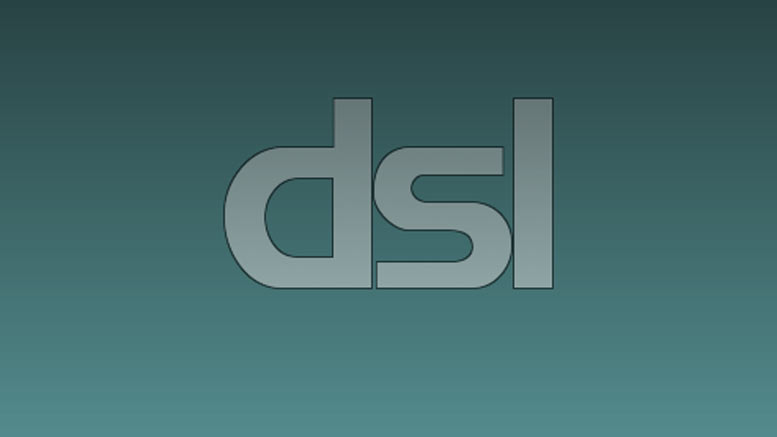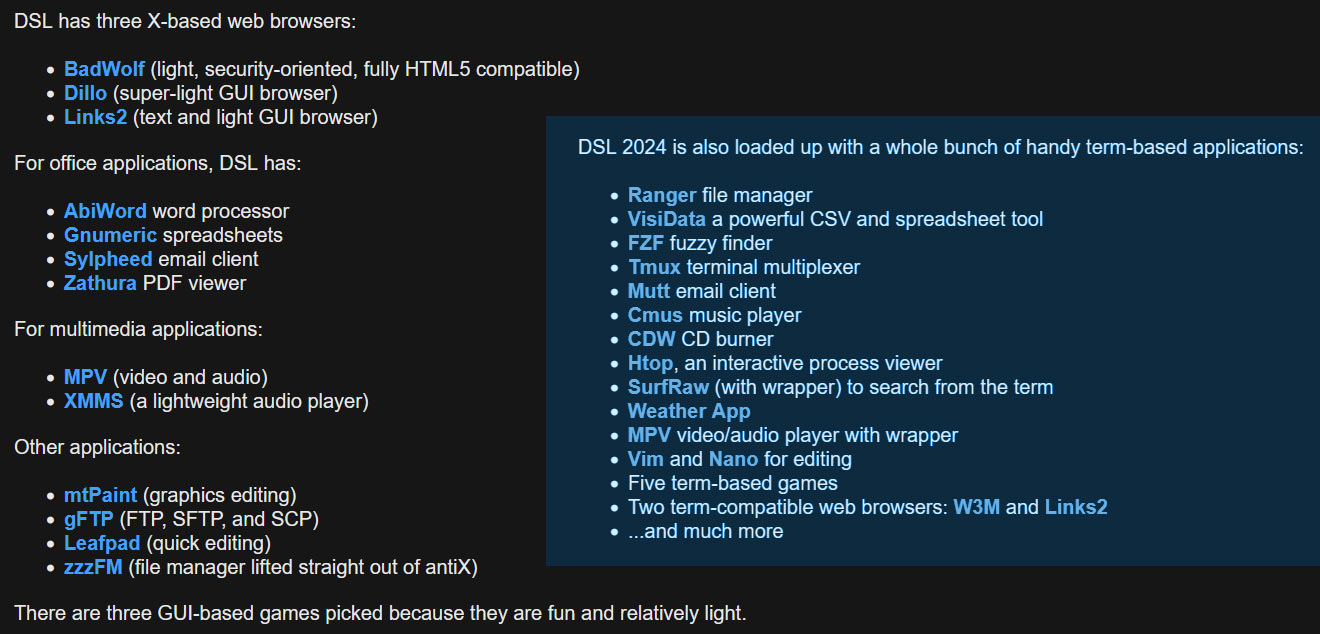Damn Small Linux returns after a 12-year break – grows from 50MB to 700MB
And beware this first 2024 release is classed as an alpha.

Damn Small Linux (DSL) has returned with a new 2024 edition. The arrival of DSL 2024 has surprised many, as the last release of this compact Linux OS was more than a decade ago. Over the years DSL has put on weight (haven’t we all) inflating from 50MB in 2008 to today’s 700MB. That sounds like a lot, but the philosophy of making a usable desktop distribution for older PCs with limited hardware resources is similar. Moreover “applications, the kernel, and drivers have all mushroomed,” explains John Andrews, the driving force behind this project.
Originally, DSL was launched as a business card-size live CD Linux distribution based on Debian and Knoppix. The relaunched version a Debian and antiX distribution, will still run from a live CD, but it needs a full-sized CD. Andrews asserts that 700MB is a new hard limit for DSL going forward, and it needs to be for standard CDR compatibility.
While the live CD distribution of DSL has multiplied 14-fold, it may still find a workable niche. There are a lot of perfectly serviceable PCs dropping off the Windows support cliff-edge which are still otherwise fit for duty. DSL 2024 will suit older PCs which may lack the performance to run one of the heavier modern Linux distributions with aplomb.
In a news post about DSL 2024, Andrews says that the bundled apps were “chosen for their functionality, small size, and low dependencies.” Nevertheless, there seems to be quite a lot of flexibility here, with two window managers, three web browsers, multiple office productivity apps, media playback, and various other essentials. Other techniques for saving space included loading up DSL 2024 with term-based applications, limiting locales to a handful of English options, and stripping out various source codes and document resource files. Last but not least, DSL 2024 has apt fully enabled (unlike earlier editions), so users can install favorite apps they might miss in the distro.
It is great to see DSL revived but, as Andrews admits, the current ISO is classed as an ‘alpha’ release, and Puppy Linux has been doing a great job with its similar full-but-light desktop OS philosophy over recent years. If reading about DSL 2024 has made you think about recommissioning some old hardware with a fresh OS it might also be worthwhile taking Puppy Linux for a walk.
Get Tom's Hardware's best news and in-depth reviews, straight to your inbox.

Mark Tyson is a news editor at Tom's Hardware. He enjoys covering the full breadth of PC tech; from business and semiconductor design to products approaching the edge of reason.
-
bit_user Knoppix used to be my bootable Linux distro of choice. Lately, I've just been using Kubuntu, since it has an option to boot straight into the OS, without installation, and that's the distro I normally run (therefore I've usually got some USB sticks with it lying around).Reply
I haven't tried running it on anything too old, but I'd be surprised if it wasn't usable on a Core 2. IMO, you probably don't want to run modern distros on 32-bit x86 hardware, at this point, since the codepaths for it don't get much testing and are starting to accumulate a significant amount of bugs. -
mitch074 Reply
I did just that, actually - Ubuntu dropped x86 support for 18.04, but 20.04 still booted on a Core 2 Quad, and with enough RAM, worked very well.bit_user said:Knoppix used to be my bootable Linux distro of choice. Lately, I've just been using Kubuntu, since it has an option to boot straight into the OS, without installation, and that's the distro I normally run (therefore I've usually got some USB sticks with it lying around).
I haven't tried running it on anything too old, but I'd be surprised if it wasn't usable on a Core 2. IMO, you probably don't want to run modern distros on 32-bit x86 hardware, at this point, since the codepaths for it don't get much testing and are starting to accumulate a significant amount of bugs.
I did install a very old Pentium III 750 with 384 Mb of RAM with the latest Debian last semester. It took some going to load the proper wifi and sound firmwares, and I had to re-allow Wifi 802.11b on my router to make it work, but I managed to start a desktop environment (lxde) and a media player to play an old DivX on it.
Chromium crashed at start and Firefox crashed when opening a single tab, because there's not enough RAM. That's the "hard" limit now.
